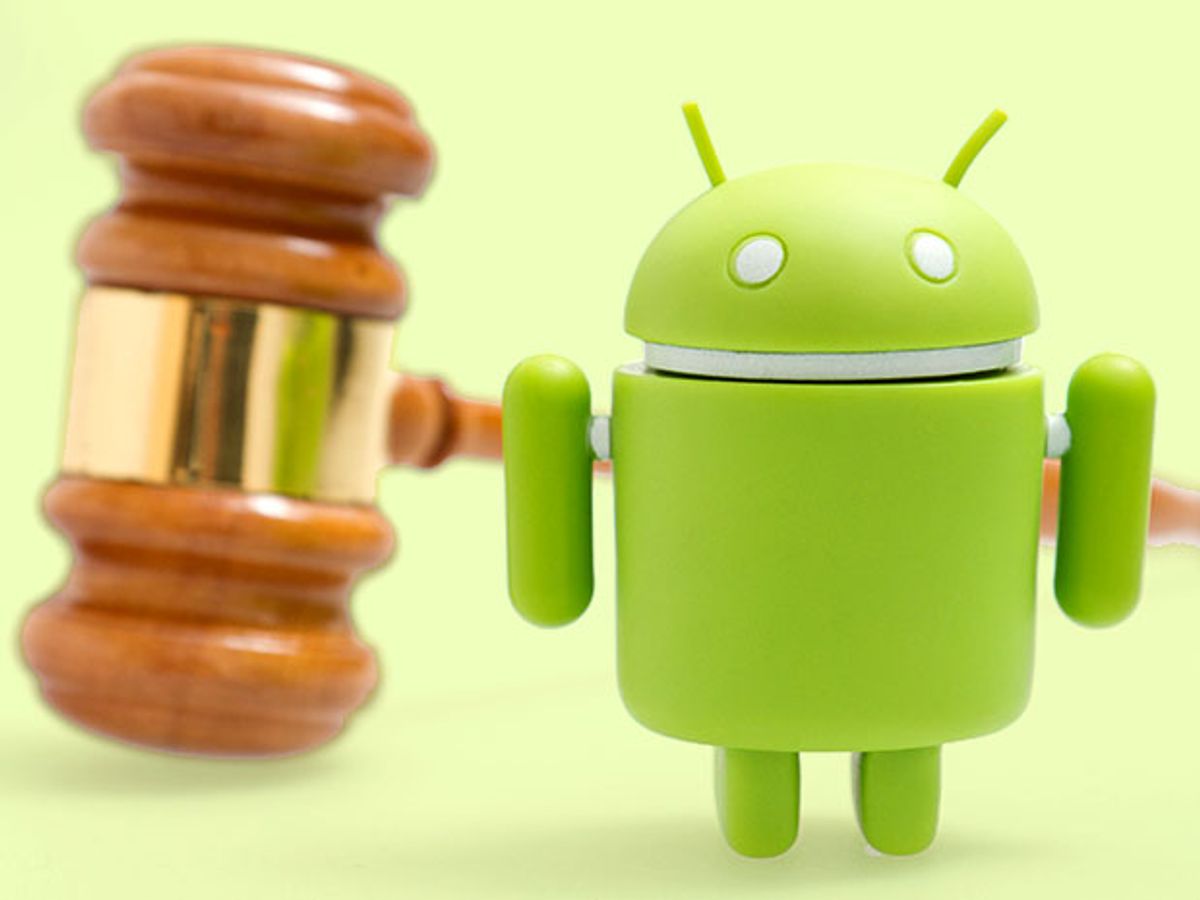On Thursday a jury in San Francisco ruled in favor of Google, its Android mobile operating system and by extension the 1.4 billion active Android devices around the world. The jury decided what could be a precedent-setting lawsuit filed by Oracle, owner of the Java programming language. Oracle’s suit claimed Android’s software development ecosystem, created for programmers to develop apps using Java, infringes Oracle’s copyright.
But the jury said to Oracle, essentially: No. Google, the jury concluded, enjoys so-called “fair use” protection for software access points to Java called application programming interfaces or APIs.
The jury’s verdict, so long as it withstands what Oracle said on Thursday would be an appeal, arguably opens the door further for developers to enjoy protected use of other companies’ APIs. And that, says one leading software copyright expert, is good news for creative software developers and for users of the millions of apps, programs, and interfaces they create.
Perhaps not so much a creative expression in themselves but rather a gateway for others to innovate and work in tandem with existing platforms, APIs are big business in some sectors of the software and online universe.
For instance, according to a study last year in the Harvard Business Review, companies and websites across the Internet offer up more than 12,000 APIs for programmers to use—as in the case of Android’s now vindicated use of 37 of Java’s APIs. For instance, the study says, Salesforce.com generates half of its revenue through APIs, while 60 percent of eBay’s revenue comes through its APIs. And, the study says, a whopping 90 percent of Expedia’s revenue comes in through its APIs.
According to Pamela Samuelson, intellectual property law professor at the University of California, Berkeley, what could have been a bad development earlier this week may now have an upside if the jury’s verdict withstands appeal.
She says she was taken aback when U.S. District Judge William Haskell Alsup's instructions to the jury simply accepted without question a previous finding on this case—that Java’s APIs should be considered protected under copyright law. As IEEE Spectrum has previously noted, Samuelson says there’s plenty of precedent in the U.S. courts that disputes or denies copyright claims on APIs.
But because the Oracle case accepted APIs’ copyrightability without question, the lawsuit also became a test lab of sorts to discover, as a fallback position, how much fair use protection software developers enjoy when using APIs, even if they are copyrighted.
The answer, it appears, is considerable.
“Google had to say, ‘The judge has instructed you, the jury, that the Java API is copyrightable; the question is whether or not Google made fair use of it,’” she says. In its arguments, Google held that its use of Java’s APIs was transformative and not just slavish or copycat. Establishing that one’s use of a copyrighted work is transformative is a pillar of any argument for fair use of that work. In siding with Google, the jury accepted the company’s argument that Android is a new and creative work that transformatively builds upon what Java started with.
“The closing argument was one in which the lawyer for Google was able to say: Look, they tried to make a phone with Java, but they failed,” Samuelson says. “We did so, but we put five years worth of effort into developing this wonderful platform that in fact has become this huge ecosystem that Java developers all over the world have been able get more of their stuff on because of this. Essentially, [Oracle’s] argument is sour grapes.”
Should Oracle follow through with Thursday’s claim that it will appeal, Samuelson says the fact that the jury rendered a (by definition unanimous) verdict narrows the window of Oracle’s options. In 2012, Alsup ruled once already in Google’s favor, and then Oracle appealed in 2013. The US Federal Circuit reversed Alsup’s ruling in 2014. Google then asked the U.S. Supreme Court to review the decision, which it denied. And that led to the current trial.
“It may be that calmer heads will lead to a decision to say, ‘If the jury found against us, it’s going to cost millions of dollars more,’” she says. “If the courts get tired of you appealing just because you lost, they can decide to order the other side, Oracle, to pay the attorney’s fees. The prospect that Google’s lawyers fees for litigating this case might have to be paid at least in part by Oracle could be another reason why they might say, ‘Enough is enough.’”
Regardless of how the current and perhaps final chapter in this lawsuit is concluded, she says it sets an important example that software companies and their lawyers can turn to when APIs come up in future software copyright lawsuits.
“While most of the decisions about APIs have been decided on copyrightability grounds, this case stands for the proposition now that fair use may be a viable way,” she says. “It’s sets a kind of precedent. Again how much of a precedent depends on what the Federal Circuit does [with Oracle's possible appeal].
“But I think that if I talk to a software company about the importance of this case, it’d be that you can win on more than one point. Make multiple arguments here. Make the argument that that API is not protectable by copyright law, and there’s plenty of precedent for that. But also make sure you have a fair use claim in there. Because as long as you reimplement an API and independently write your code, you should be OK.”
Margo Anderson is senior associate editor and telecommunications editor at IEEE Spectrum. She has a bachelor’s degree in physics and a master’s degree in astrophysics.



